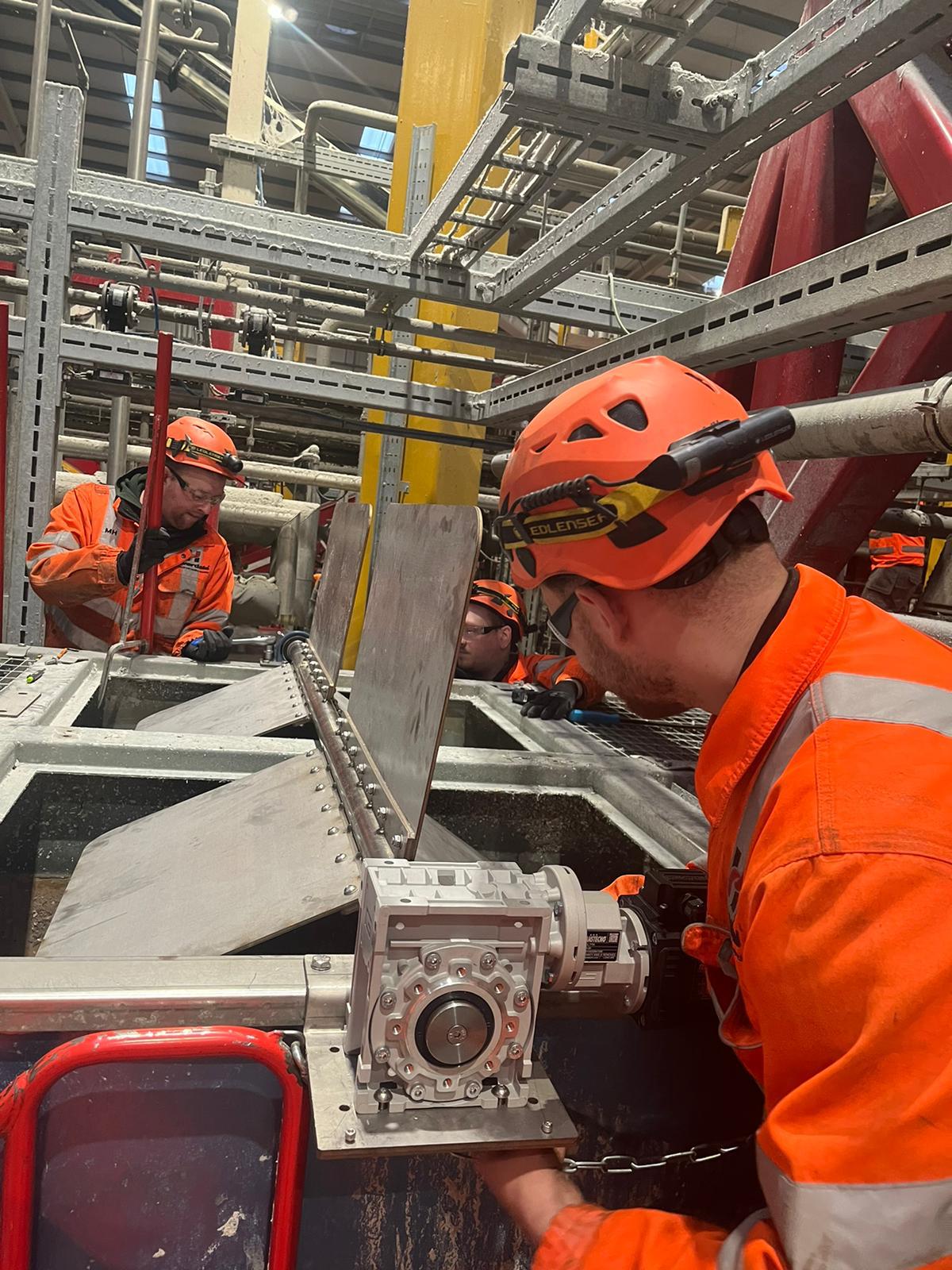Planning MRF facility shutdowns and outage projects is key
Materials Recycling Facilities (MRFs) rely heavily on conveyor systems to sort and process recyclables efficiently. Regular maintenance of these systems is crucial for several reasons:
- Prevent Breakdowns: Routine maintenance helps identify and resolve minor issues before they become major failures, thereby preventing costly breakdowns and unplanned downtime.
- Increase Efficiency: Well-maintained conveyors run more smoothly and at optimal speeds, increasing the recycling process’s overall efficiency.
- Extend Equipment Lifespan: Regular upkeep, including lubrication, adjustments, and part replacements, extends the life of conveyor systems, making them a more valuable long-term investment.
- Ensure Safety: Properly maintained conveyor systems are safer to operate. Regular checks can prevent accidents caused by equipment failure.
The Benefits of Planned Outages and Shutdowns
Planned outages and shutdowns, although they may seem counterintuitive, offer significant benefits:
- Comprehensive Maintenance: A shutdown allows for thorough inspections and repairs that cannot be performed during regular operations. This can include upgrading parts and implementing new technology.
- Cost Efficiency: Although shutting down operations incurs immediate costs, it is generally more cost-effective in the long run. Addressing issues during a planned outage can avoid more significant expenses associated with emergency repairs and unplanned downtime.
- Improved Performance: Post-maintenance conveyor systems often perform better, which can increase sorting accuracy and reduce waste, enhancing the MRF’s overall productivity.
- Staff Training: Downtime can be used to train staff on new protocols or equipment without disrupting the operational flow.
By understanding the importance of regular maintenance and strategically using planned outages, MRFs can significantly improve their operational efficiency, safety, and profitability. Prioritising these practices is not just about keeping the equipment in good working order; it’s about ensuring that the facility can meet its recycling goals effectively and sustainably.
Engineering Services for Conveyor Systems at MRFs
Engineering services for these conveyor systems typically involve:
- Design and Customisation: Engineers design conveyor systems tailored to the specific needs of an MRF, considering the types of materials processed, volume, and facility layout.
- Installation Services: Professional installation ensures that the conveyor system is set up correctly and integrates seamlessly with other equipment in the facility.
- Maintenance and Repairs: Regular maintenance is crucial for the longevity and efficiency of conveyor systems. Engineering services often include routine inspections, troubleshooting, and repairs to minimize downtime.
- Upgrades and Modernisation: As technology advances, MRFs may need to upgrade their conveyor systems. Engineering services can include integrating new technologies, improving system controls, and enhancing safety features.
- Training and Support: Engineers train the MRF staff to operate the conveyor system safely and efficiently. Ongoing support is also essential for addressing any operational issues.
These services are essential for optimising the performance of MRFs, ensuring they operate smoothly and effectively in sorting and recycling materials. If you have specific needs or questions about conveyor systems at MRFs, consulting with a specialist in the field or visiting specific websites like Hoverdale might provide more detailed information and services tailored to your requirements.
Request a FREE SITE SURVEY today!
👉🏼 Hoverdale’s Promise 👈🏼
All our systems are designed and manufactured, Made in Britain and installed by our qualified Hoverdale Engineers. We offer a 100% money-back guarantee that we will solve the issues and commit after-sales and technical support for ongoing system performance.






